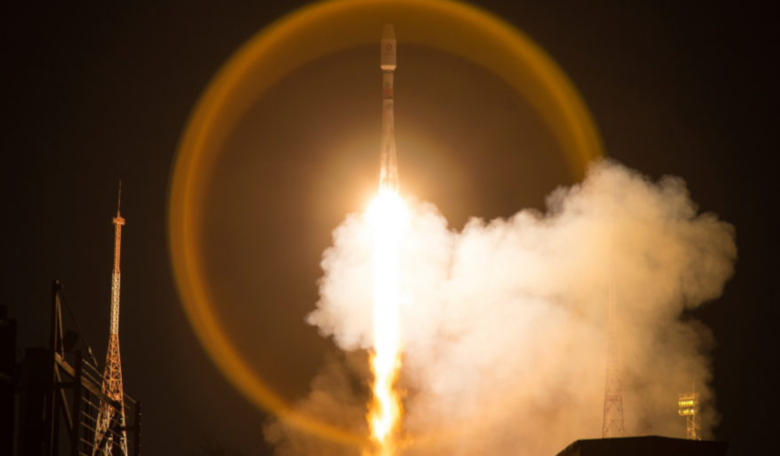Global communications company OneWeb has successfully launched 34 more satellites into orbit in its second launch of 2020 as it pushes to to provide broadband internet access around the globe via a network of satellites in low Earth orbit.
However, the company is now contemplating filing for bankruptcy protection says a financial report by Bloomberg, as it faces stiff competition from competitors such as Elon Musk’s SpaceX Starlink megaconstellation and Jeff Bezos’s Project Kuiper initiative, who plan to put 40,000+ and 3236 satellites respectively into space to achieve the same off-word broadband services.
The London-based start-up, which has now launched 74 satellites as part of its low-Earth orbit constellation, is considering seeking court protection as well as other possible out-of-court alternatives to avert cash difficulties faced by the company.
OneWeb’s main backer is SoftBank Group Corp; a Japanese multinational conglomerate holding company headquartered in Tokyo. It owns stakes in companies such as Uber, WeWork and Boston Dynamics and it also runs Vision Fund, the world's largest technology-focused venture capital fund.
The company’s goal of providing high speed, reliable internet to people and business around the world via its constellation of low-Earth-orbit satellites is costly.
So far the company has raised £2.6 billion to fund its ambitions, but startup costs are high and the company is apparently facing uncertainties by The Federal Communications Commission (FCC) as to how many satellites can be used to provide internet access to the US. The satellite operator would be among the first SoftBank-backed companies to file for bankruptcy, should this go ahead.
OneWeb’s plan is to have its constellation of 650 satellites in place by the end of the fourth quarter of 2021. Conversely, Elon Musk has just boosted his Starlink mega-constellation to 360 satellites with his latest launch last week.
Starlink satellites are being made reportedly at the rate of six per day and thousands more are expected to launch in the months and years to come.
The tech entrepreneur has also just been granted a license by the FCC for the use of up to a million terminals that would work on the ground with the mega-constellation to deliver world-wide broadband internet service.
OneWeb have so far declined to comment on the bankruptcy claims, and have eschewed negativity by focusing on the successful launch.
“We are very proud of the progress we have made so far in 2020 and I would like to show the utmost gratitude for the time, effort, and expertise of the OneWeb company, our partners and our people as we come together and support one another,” CEO Adrian Steckel said in a statement following liftoff.
"In these unprecedented times following the global outbreak of Covid-19, people around the world find themselves trying to continue their lives and work online. We see the need for OneWeb, greater now more than ever before.
“High-quality connectivity is the lifeline to enabling people to work, continue their education, stay up to date on important healthcare information and stay meaningfully connected to one another. The crisis has demonstrated the imperative need for connectivity everywhere and has exposed urgent shortcomings in many organisations’ connectivity capabilities. Our satellite network is poised to fill in many of these critical gaps in the global communications infrastructure.”











